Dr Mohid Khan
Welcome to our podcast, where we're going to talk about shared decision-making in neuroendocrine tumours, or NETs, how to individualise patient treatment and factors associated with that. I’m Dr Mohid Khan. I'm a Consultant Gastroenterologist and lead at the Neuroendocrine Tumour Service, South Wales, UK, and this is Sally.
Sally Jenkins
Hello, I'm Sally Jenkins. I'm a NET patient of 15 years standing, and learned to live with it. It's changed my normality, but I now have a different one. And over the years, I've been quite involved with patient support, patient groups and also advocacy.
Dr Mohid Khan
Tell me about your experience from the start.
Sally Jenkins
Right. Goes back 15 years. I was diagnosed in 2009, but before that, for a couple of years, I'd been having increasingly severe symptoms, but they were rather nonspecific. So it was mainly pain, abdominal pain, diarrhoea, feelings of tiredness and a very slow weight loss. But it was, as I say, very nonspecific. So I was one of those patients that was in and out of the GP surgery, one of the ‘revolving door’ type of patients, and I went through all sorts of tests, none of which actually showed anything. And so I was beginning to wonder whether I was actually making it all up, or whether I’d turned into a middle-aged well-woman who was inventing all these different symptoms. But then, just at the end of 2008 I thought, I'm going to do something serious about this, and early in 2009 I had a private CT scan and something showed up there.
But before anything could be done, I actually saw a surgeon and I was scheduled for routine surgery, but before anything could be done nature took over, and the NETs turned ischaemic, in other words, they blocked a blood vessel in my abdomen, and I became really ill. So I was blue-lighted into a local hospital and had emergency surgery. So I was in hospital for a couple of months and when I came out, I was minus quite a large amount of small bowel, also minus some large bowel, I had a stoma and I was being fed through a tube that went in through the chest.
So I went home for seven months and then I was one of the fortunate ones that could have the surgery reversed. So I lost the stoma, but for a short while it was touch-and-go whether I still had enough digestive system left to actually survive without artificial feeding. Again, I was one of the lucky ones. I can survive just eating ordinarily, even though I do have quite a lot of restrictions about what I can eat.
But that was not the end of the story. Although I was medically stable and I was given injections to stop the NETs that were still left, because there were a lot that were inoperable and were still there, I was given injections to stop them progressing. But, my condition was not particularly well managed because I didn't really have access to specific NET expertise at that time.
So, I still had very similar symptoms to before diagnosis, and that was geting abdominal pain and that was necessitating admission into hospital, I still had a lot of diarrhoea, and I was still tired. But then, after a couple of years, I was very fortunate, I did gain access to NET expertise. And when that happened, my life just changed completely because the condition was managed correctly. And so that took about a year to sort out, including having something called an ERCP, which is a fancy type of gastroscope, which solved the abdominal pain problems, because what had been happening was that it was assumed that these pains were to do with my condition, and in fact they weren’t, it was something completely different. So it took a NET specialist thinking outside the box to actually sort everything out. Then after those couple of years, there was still no specialist NET service in my area, so I was referred out to a Centre of Excellence. And things continued very stable for years, which was really great. I couldn't go back to a normal life, I never have done, but I could establish a new normality.
So things stayed stable for about ten years and then the NET started moving again. Started growing. Now that is not a disaster because there's something called PRRT, which is a nuclear therapy. I had that. It needed four doses, three months apart, over the period of a year. And that happened during lockdown and I have to hand it to the NHS, lockdown did not stop them. It just kept carrying on as if nothing was happening. So it didn't affect my treatment at all. Even though I was having to go up to London to have it done, and I was mildly radioactive after each dose, but it did what it said on the tin. It stabilised the tumours and they have stayed stable since then. That was in 2020.
I forgot to mention, between the time when I was transferred to the Centre of Excellence and the PRRT, I was so stable that I was able to have things like a hip operation. I had a hip replacement. So, life can continue very much normally, even with a quite severe cancer.
Dr Mohid Khan
Thank you Sally. That’s a summary of a very long, long story. Throughout that story, you've had lots of consultations, various notes, so what makes a good consultation?
Sally Jenkins
It's if the person on the other side of the table is listening to you, that is really the main thing, and also has the expertise that is necessary. Because in the beginning, before I actually got in touch with anybody that had NET expertise, I was told I was treated by very competent people, but they weren't specialists. And so sometimes I would go into the room and the doctor would actually say to me things like, “Well I'm not sure of the details of your cancer. Can you tell me what you know?” Now, that's not what you want to hear from a specialist, because for the previous couple of months you will have been thinking, oh, I wonder what this is? I wonder what that is? And you store all those questions and when you get to the expert, you want the expert to actually have comprehensive knowledge. So, if they try and blag it, you can really suss that out pretty quickly. If you know that that person has a certain amount of knowledge but is willing to admit that they don't know everything and that they will find it out for you, then your confidence increases, and you know then that they're listening to you and that they have the knowledge to be able to treat you competently.
Dr Mohid Khan
So, that knowledge and expertise instils a confidence as a patient?
Sally Jenkins
Yes. Yes it does.
Dr Mohid Khan
Are there any other factors that made you think, oh, that was a good consultation or a bad consultation?
Sally Jenkins
I think when you walk through the door, in the first 30 seconds, you establish whether or not it's going to be good and it's all to do, I think, with body language. If your doctor is looking at you and has your attention, you are, you know, his focus or her focus.
Dr Mohid Khan
Rather than looking at the computer?
Sally Jenkins
Yes, rather than looking at the computer or whatever. Treats you as a human being. A smile always helps, even if they've got the cares of the world on their shoulders, a smile for you is actually quite important because, even though patients appear confident, and I've met hundreds of NET patients now in various meetings and support groups, underneath it all, we are nervous. We may not show it and we may not say it, but we are quite worried even if it's buried very deep. So if when you walk through the door, you think, oh yes, this person is on my side and is going to listen to me. Then that sets everything off to a good start, and that is down to expression and body language.
Dr Mohid Khan
So communication skills, and then, as I said, probably from the clinician’s perspective, communication skills are being taught nowadays at medical school to varying degrees throughout the world. And, you know, I've always thought that communication skills and how you make the patient feel is really important. So from my perspective as a clinician, obviously the consultation, there's a goal to the consultation which is relaying information or answering questions, there’s all sorts of different types of consultation and also different types of patients and people, you know, I'm a patient and I have quite a lot of different types of consultation myself, and everyone's different I think. And one person is different to another person and it's a range of personalities throughout society that are represented, and I probably found that dificult initially years and years ago. But I think something for clinicians, which I've learned over years, is trying to be adaptable to the patient. So some patients come to me and go, ‘oh, so just tell me how it is or tell me what to do’. But then some people want to be really involved and the goals of the consultation, I think, are quite important. From a patient perspective, how do you feel about seting out goals at the beginning of a consultation?
Sally Jenkins
I find that really useful. Yes. The consultations that I've been through have changed over the years because in the beginning, it's novelty and, you know, you want lots of information quickly and I always found that I wanted to be told what to do because I thought, you know, the experts know what they're doing. I just need that. As I've gone on, now that I've got more expertise myself, I want information, but sometimes I need it spread out in a slightly different way. But it's always useful at the beginning to know that you've got common goals. And so, you know, saying, ‘well, in this consultation we're going to discuss this and this. Are you happy with that?’ to the patient is reassuring and it also gives you something at the end that you can review and go over and say, ‘oh yes, we’ll come to this decision and that decision, and that decision’. And that will sometimes spark another question, because something that we do an awful lot of, and I've done it myself even after 15 years, is I have this total blank halfway through. I've got a whole list of questions. They are written down on a piece of paper. I practise them before, but I'll still leave them out and so sometimes that reviewing of the goals will spark a question that otherwise could have been left out.
Dr Mohid Khan
I think that's important. I felt that as a patient myself, I will often leave the consultation and have forgotten, ‘oh I wish I'd asked that’. So, I have then over the years thought about that in consultations with patients. At the end I'll offer a chance to them, “Have you understood everything, are you happy with this plan? Have you got any questions to ask?” But then knowing if they think about it and they're not sure when they're thinking I'll actually use the computer and, sort of, request some things whilst it gives them a little chance to think about questions and also offer them afterwards at the end saying, “Well, if you have any questions afterwards, we have a nurse specialist. So there's an opportunity at some point in the future to ask those questions”.
Sally Jenkins
That's really good because what it does, it takes the pressure off and when you're more relaxed, then you do remember things. But that little thing that you just said of, turning away and maybe writing something on the computer, it gives you just that little chance to feel relaxed and comfortable, to think, ‘oh yes, that last question that came up’.
The other thing that is useful and, you know, you see it on an awful lot of websites and discussion things, is write your questions down before you go. Don't be afraid to get a pen and paper out and show them, you know, go down and say, “Would you mind if I asked you these questions?” Write down answers. But also, if you have somebody with you who is also briefed, and can prompt, you know, somebody that you're comfortable with, and if the clinician welcomes them as well and includes them, then that all adds to the atmosphere of being relaxed, because being relaxed and confident I think is the key.
Dr Mohid Khan
Yes, I completely agree with you. And what we want is the patients and the relatives or friends or carers to be comfortable enough to ask those questions at the end. And quite often people will have a list of questions, and they'll bring that out at the end. And I guess, I asked about what makes a good consultation, quite a lot of the time, if they bring out a list of questions at the end and they've gone through to the end and actually going, ‘oh, well, actually you've covered everything’, then I think at least I've enabled a good consultation or a relaxed consultation so that there's enough information that they can go away and feel that they've got confidence in us and the whole service.
Sally Jenkins
Yes. Also having the option to ring back later, that’s really important to, you know, to get back to a CNS (Clinical Nurse Specialist) and you know that the CNS will also have access then to the clinician. So if you’ve really forgotten something you can always go back.
Dr Mohid Khan
So, shared decision-making and individualised preferences, what would be your goals? What's the most important, sort of, points and goals and preferences in shared decision-making, from a patient perspective?
Sally Jenkins
I think from the patient point of view, it's all to do with a feeling of control. As we've said earlier, sometimes patients do want to be told what to do, but even those who think they need instruction do like to have a little bit of choice. And I think, with NETs, there are so many different pathways. Different patients have different pathways, but then there are options even for one particular patient, I think I’m right there, aren’t I?
Dr Mohid Khan
Yes. I mean, sometimes there's no right or wrong answer, which is what I tell quite a few patients.
Sally Jenkins
It's just a balance of probabilities that that one might work a bit better than that one, or doing nothing might be okay.
Dr Mohid Khan
Yes. I mean, we've got multi-disciplinary team meetings where there's a lot of specialists involved in neuroendocrine tumours, who will have a consensus, where then it's the senior responsible clinician’s duty to involve the patient in the discussion during consultation. And really, I think it's up to the clinician to offer those options and say, ‘well there are alternatives but this is the preferred option’. And sometimes it's also relying on the fact there's no certainty and weighing up pros and cons of each. And as you said, in some patients, if you have different patients and they've got the same type of NET and the same sort of stage, etc. There are other factors involved that the patient might bring to the table to influence what the best shared-decision is. For example, I assume, I mean, there are patients that have their lives affected, I mean, everyone's life is affected by neuroendocrine tumours, and the people around them, there's work and family, travel involved, which decisions can affect. I mean have you had that experience yourself?
Sally Jenkins
Yes, I have, gosh, it had a huge effect on my family. Well, when I was diagnosed, I was a wife, mother, had a daughter at university and was a lecturer. I had a very busy life. That all disappeared, and it affected the whole family around me and all my colleagues. And so the timing of some treatments made a lot of difference. You know, I was a lecturer, so life during the summer wasn't as pressured as during term time and if you can fit choices in around that, it makes a huge, huge difference.
The other thing that I've noticed as well, not so much with me, but a few of my fellow patients have mentioned it, is travel and particularly controlling symptoms, because it's very dificult to travel if you have to be in the loo every half hour. Now, just the simple thing of geting the balance of medication right and having the choice to do that can make a lot of difference. And even being told things like, “Well, have you heard of the radar key scheme?” You know, that made a huge difference to a fellow patient. Before, they weren’t going on holiday. But when they heard about that, they said, “Yep, we'll go”, because of confidence. It was a matter of confidence. But all those little things that you can adjust slightly and they will turn into a viable life. Whereas if they're not adjusted then you haven't got a viable life and that is really important to the patient.
Dr Mohid Khan
So there are life-changing factors involved in shared decision-making? And I guess you were referring to the radar key, which is in the United Kingdom, which allows you access to toilets that are locked in public places. So, yes. So that's a sort of a preference-influencing factor, in shared decision-making. Are there any other, sort of, goals and preferences that you think yourself or patients may have which would affect shared decision-making? I mean, I guess from my perspective, I know that people are different and as you say, some people just want a doctor or clinician just to make a decision because they don't, maybe, either understand the information even if it's relayed in a very simple way, or are used to someone just making the decision for them. Whereas some people want to get very, very involved, and want all the information and judging how much information someone wants before making that decision together or delegate that decision is really important.
Sally Jenkins
That's something that I've always admired doctors for, because you have to sum up quite quickly how much information a patient needs, and giving them too much will frighten the living daylights out of some. But you got to do that almost instantaneously, and that must be quite dificult to do. I've always admired that because it's such a close call, but it makes an awful lot of difference to a person. And, you know, some people want to know whether in a particular test, the number was 58 or 57, and to them it makes a huge amount of difference. Where others will just want to know, ‘okay, it's in the normal range’ and they're happy with that. And you've actually got to judge that and get that across.
Dr Mohid Khan
It is a dificult skill, which, I have to check in at the beginning of the consultation just to see…
Sally Jenkins
Yes, so how do you do that?
Dr Mohid Khan
I mean, I think it's just the… I think it comes with experience and seting the goals right at the beginning of the consultation, that introduction thing we talked about earlier, and making people feel relaxed, then I think it's a human-factor skill, being able to judge … We ask people but sometimes, you know, people are anxious and worried and there's always opportunities afterwards to get more information, as you say, because ultimately, if we get to the point of shared decision making, if someone, someone legally in England and Wales, for consent to a decision for treatment, the patient needs to have the capacity to make the decision, has to have all the relevant information and also the alternatives and material risks. So if a particular treatment has side effects then we have to mention them because, as you gave an example of someone who couldn't travel because they were having lots of diarrhoea and so therefore were worried, say if it's an injection, injections could cause a bit of side effects with diarrhoea. If that patient can't move very quickly and they're on a walking stick with a dodgy hip and can't get to the toilet in time, then that could really impact their lives if they are geting runny stools and have to rush to go to the toilet. So being able to express that, and knowing that, knowing that patient will think that's important for them, we have to be able to give all that relevant information so we can have a shared decision.
Sally Jenkins
Yes. That's actually another point I’ve just thought of. It's quite an embarrassing subject and a lot of patients, particularly when they're newly diagnosed, they just don't like mentioning it, “I’ve got to go to the loo a lot”, in a quiet voice. And we notice it a lot at patient meetings. You can tell the old hands, because by the time you've been there half a dozen times, you are discussing your toilet habits and telling funny stories about it and that really does help. But in the beginning, there can be quite a lot of embarrassment and patients just don't want to say anything. So it takes quite a lot of skill from the doctor to make them relaxed and elicit that from them and let them know that, actually it's normal.
Dr Mohid Khan
Yes, and actually I'm talking about bowels most of my life as a gastroenterologist. I think it's an important point to make and I think there's also a cultural thing, generational differences, etc. Lots of factors that other people are more expert in than myself. So when I moved across from London to Wales I bought a paper questionnaire which was used at a previous institution for other things, not for cancer, and that allowed people just in the waiting room to tick some boxes so that they know how to express themselves if they’re saying things that they might feel embarrassed about. Now we've got digital versions of that and I know that we'll talk about patient outcomes in a moment.
Sally Jenkins
Yes I can remember that. That's really good. That you can hand the information over without embarrassment and then there's the grounds for discussion. The doctor can open the subject and it's not embarrassing then.
Dr Mohid Khan
Thanks, Sally. An interesting conversation. So as we come to the end of this, podcast, I'd like to leave the audience with some concluding points. So what do you think the takeaways of our conversation have been?
Sally Jenkins
From the patient's point of view, what patients want and need is to feel that they are being listened to carefully and their views are being taken into account because what that does is give back a feeling of control, that something like a cancer diagnosis takes away.
Dr Mohid Khan
And from the clinician perspective, there's communication skills, empathy, the ability to tailor the consultation and information and tailoring shared decision-making to the situation in the patient because people are different. And so I think we've covered quite a lot today. So thank you. Thank you very much, Sally. So, hopefully we'll see you soon!
Tonke de Jong
If you enjoyed this podcast and want to find out more then please look for the "Oncology Medical Conversation Podcast" under the account of COR2ED Medical Education. Also don’t forget to rate this podcast, subscribe to our channel, and share it with your colleagues. Thank you for listening and see you next time.
This podcast is an initiative of COR2ED and developed by NET CONNECT, a group of international experts working in the field of neuroendocrine tumours. The views expressed are the personal opinions of the experts. They do not necessarily represent the views of the experts' organizations, or the rest of the NET CONNECT group. For expert disclosures on any conflict of interest please visit the COR2ED website.
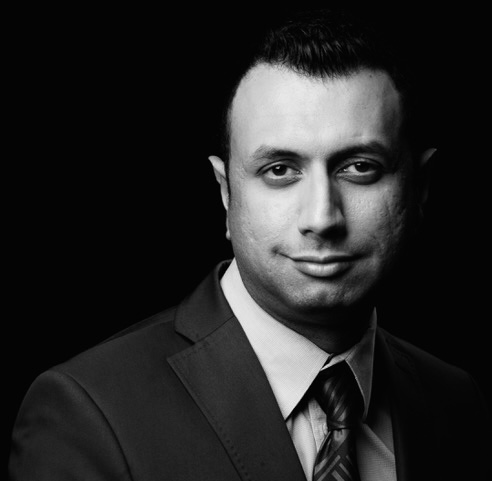
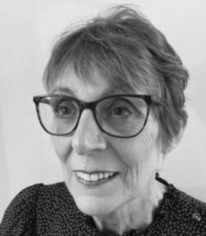



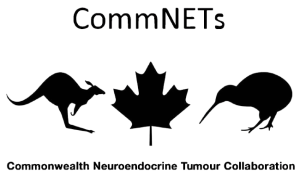

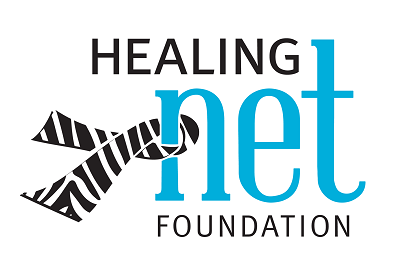
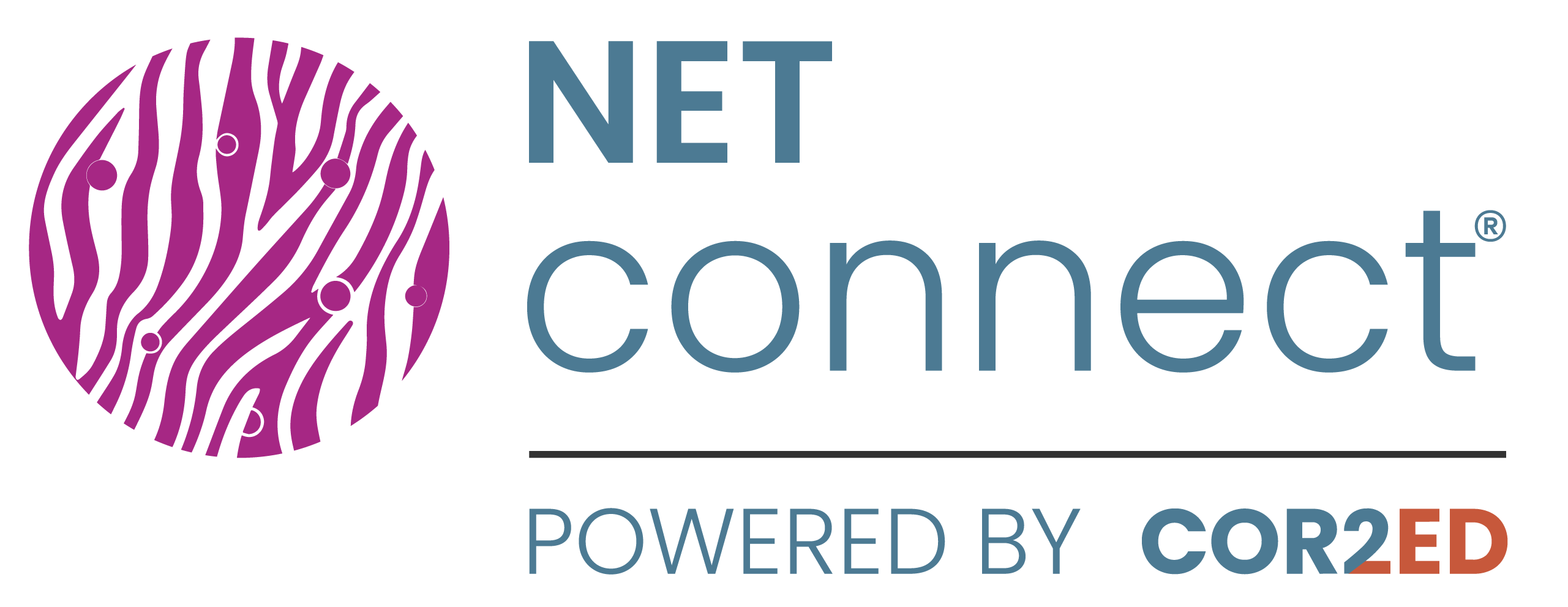

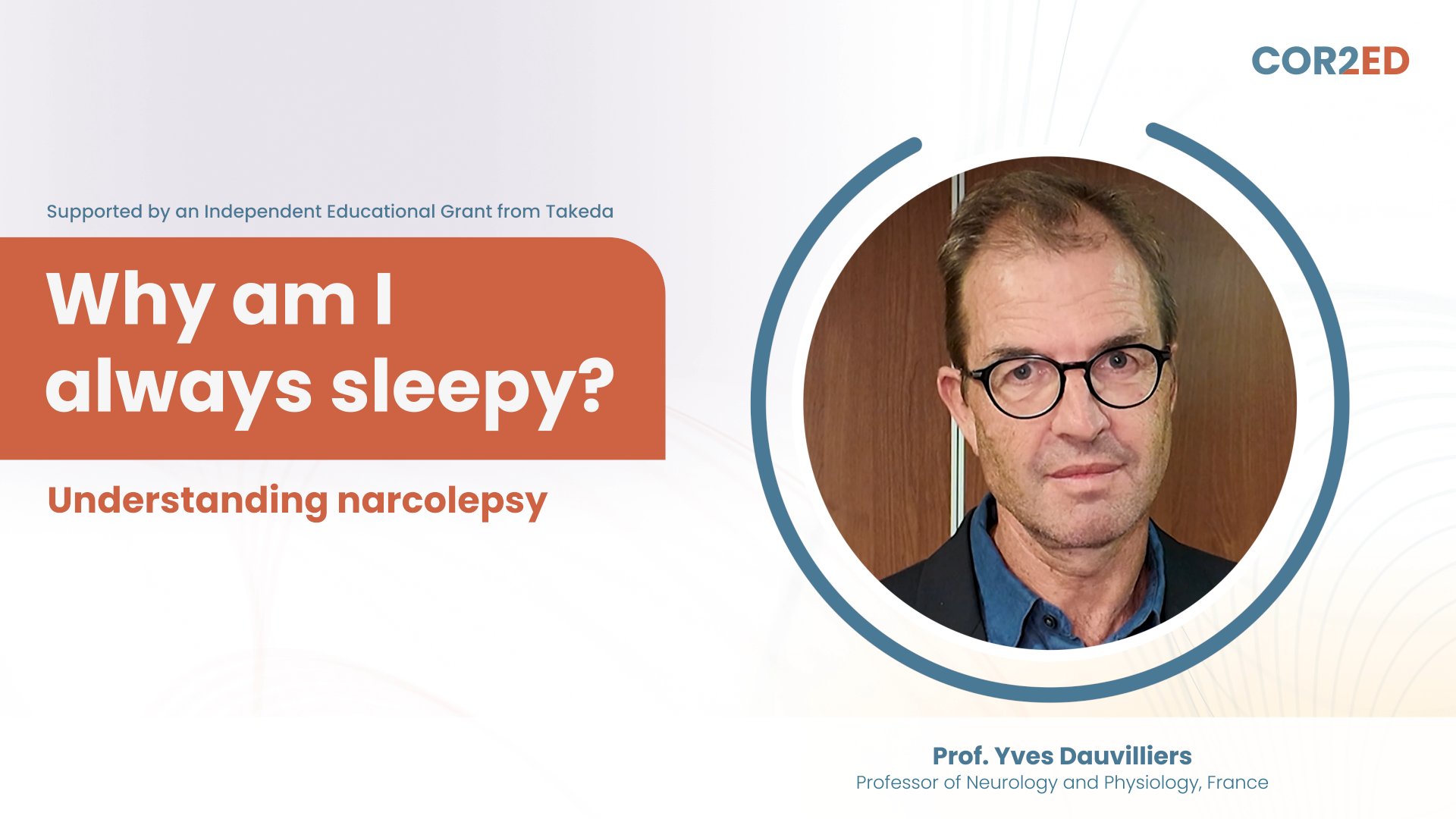

 2 MIN
2 MIN
 Jan 2026
Jan 2026 

 Downloadable
Downloadable 






